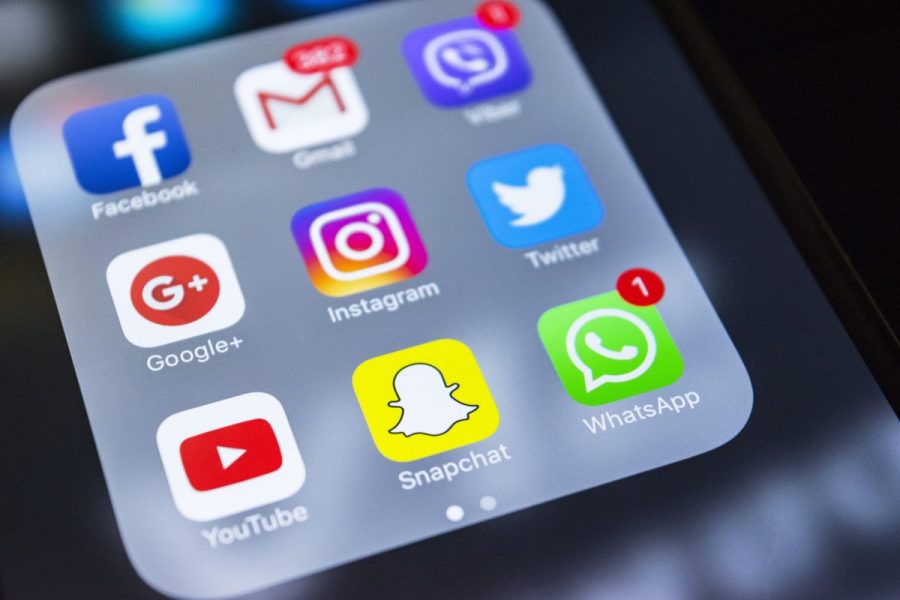The Problems Posed by Social Media Are Not Metaphysical
If you have ever had a teacher or professor lament about the effects that social media is having on you and how it is rotting your brain, well, they’re not alone (here’s looking at you, Mrs. Martin).
The Seattle school district is suing social media companies, namely Meta (owner of Facebook and Instagram), Alphabet Inc. (owner of Google and YouTube), Snap Inc. (Snapchat) and ByteDance Ltd (owner of TikTok), arguing that they “are responsible for hooking young people on their platforms and creating a mental health crisis.”
Responsible for 50,000 students, the Seattle school district believes that the social networks owned by these companies are at fault for their students’ anxiety and depression, as well as increasing rates of suicide. Recently, there has also been increased awareness and criticism for how these media giants are complicit in promoting unhealthy behaviors, namely disordered eating. Such claims came to light after Meta whistleblower Frances Haugen revealed documents that, allegedly, her former employer “knowingly prey[ed] on vulnerable young people to boost profits.”
Of course these companies do not want to shoulder the blame for poisoning the minds of youth worldwide. In their defense, citing the steps taken to prevent young audiences from seeing harmful content, such as allowing parents to limit their kids’ screen time and age-verification steps. These are, however, nothing more than half-measures, meant to appease concerned parent groups. They are nothing more than bandaids on a gaping wound, giving the illusion of Internet safety as such restrictions are unbelievably easy to evade.
However, what is currently serving as an even bigger defense is a loophole in the Communications Decency Act which has protected social media companies from similar lawsuits in the past.
I believe that this loophole should absolutely be closed, because social media companies are to blame for the mental health crisis currently ravaging American youth. For nearly two decades, they have been greedily marketing harmful products, lifestyles and mentalities to young people.
In last year’s State of the Union address, President Joe Biden brought up the harms of social media, the first president to ever do so during the State of the Union. He highlighted the underlying reason as to why social media companies will never truly dedicate themselves to curbing youth media addiction. He called the behaviors of these companies a “national experiment they’re conducting on our children for profit.”
As long as young adults, known to be marketers’ most valuable demographic, stay on social media and continue to be a captive audience for companies looking to sell products or mine information, social media companies will not make any significant concerted effort to lessen the attractiveness of their platforms or reduce their addictiveness.
While suing the social media companies is certainly a symbolic step, I’m not sure it is much more than that, because honestly that’s not the main issue. The problems that are making teenagers anxious and depressed don’t stop — or start, for that matter — on TikTok or Instagram. And what happens if the lawsuit is successful, if social media companies are concretely found to have poisoned the minds of young people? What’s the endgame? Social media, as well as our reliance on it, is too deeply entrenched in our society and ourselves to be completely eradicated.
Again, for argument’s sake, let’s say the lawsuit is successful and there are stricter rules about teenagers creating accounts and stronger parental controls. What happens when those adolescents become adults? The buck also doesn’t stop with young people. Once those vulnerable kids become adults, that content will still be available to them, and those same mental health issues will be waiting for them on the other side of their eighteenth birthday.
The issues that are causing such overwhelming dread about the state of the world, and even the way we see our own bodies, is all around us. Whether or not a teenager is in-tune to these social media platforms, it doesn’t matter. The doom is all around us, and while social media magnifies it, it is inescapable.
Whenever something particularly technologically dystopian happens, like, say the development of an AI service that can write your college essay, a chorus of us obnoxious television show know-it-alls like to say, “Oh this is just like an episode of ‘Black Mirror’!”; Referencing the show that episodically makes the case that technology generally and social media specifically are leading to the collapse of our too-advanced society, as our phone screens are a type of “black mirror.” However, a mirror can only reflect what’s around it. The world issues are certainly amplified and the ones more likely to cause us panic are sent to us via a terrifyingly accurate algorithm, but the more anxiety-inducing fact is that these problems surround us; they are not safely-enclosed in a phone or an app. Sure, we have the power to delete the app, but we don’t have the power to close out the outside world.
Even after we close the app, the beat goes on.
Nicole Braun, FCRH ’24, is an English major from Saddle River, N.J.

Nicole Braun is a senior from Saddle River, N.J. and she is thrilled to be a member of Volume 105! Her love for writing and editing led her to begin writing...










































































































































































































